The new way to travel if you're disabled and use access
- Published
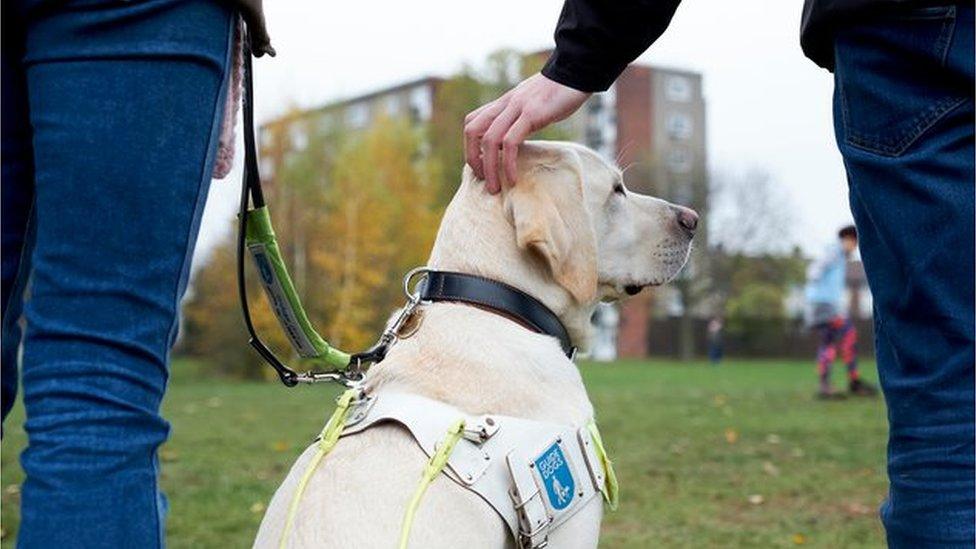
New one-way systems may confuse guide dogs not familiar with the route
Due to social distancing, the way we travel has changed and for many disabled people the access support they once relied on has changed too.
Here's the lowdown on what to expect if you're used to being guided between platforms, using wheelchair spaces on trains or if you're a guide dog owner wondering whether that old dog will forget his tricks.
Guide dogs
If there's one type of access worker that doesn't always follow the rules, it's guide dogs. So has pawsing their usual routine for three months meant they have lost vital skills?
Pete Osborne from the charity Guide Dogs says while his guide dog has enjoyed playing at home, he's confident that older dogs won't forget their training. Recently-qualified dogs, however, may forget some skills.
Owners should "keep things as normal as possible when exercising" to keep skill levels up, he says.
Some transport hubs are adapting their layouts to include one-way systems. So Pete says guide dog owners should ask about any such changes before trying the journey out, because "if your dog's not familiar with it they can lose confidence".
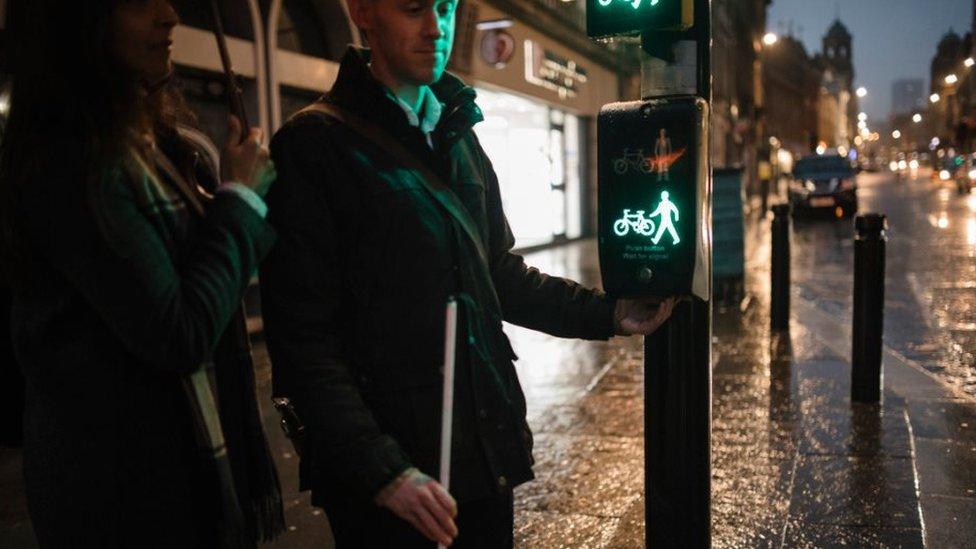
Human support is also a worry for some visually impaired people. A recent survey by Guide Dogs found that only 22% of the public would feel comfortable guiding someone - which can involve taking someone's elbow.
Pete says: "It's always helpful from a two-metre distance to say 'Hello, is there anything you need?' Even though it might be difficult to guide someone, you could watch the road and say when it is safe to cross."
Even offering a description of the space could help, especially if things have changed.
"Dogs aren't huge respecters of queues and I've heard about dogs treating each person as an obstacle in shops and weaving between them until they've reached the front of a queue."
Between March and June, Guide Dogs paused its breeding programme. Normally about 200 puppies would be born during that time, but because of growing and training time, it will be another 18 months before the charity sees any impact.
Trains
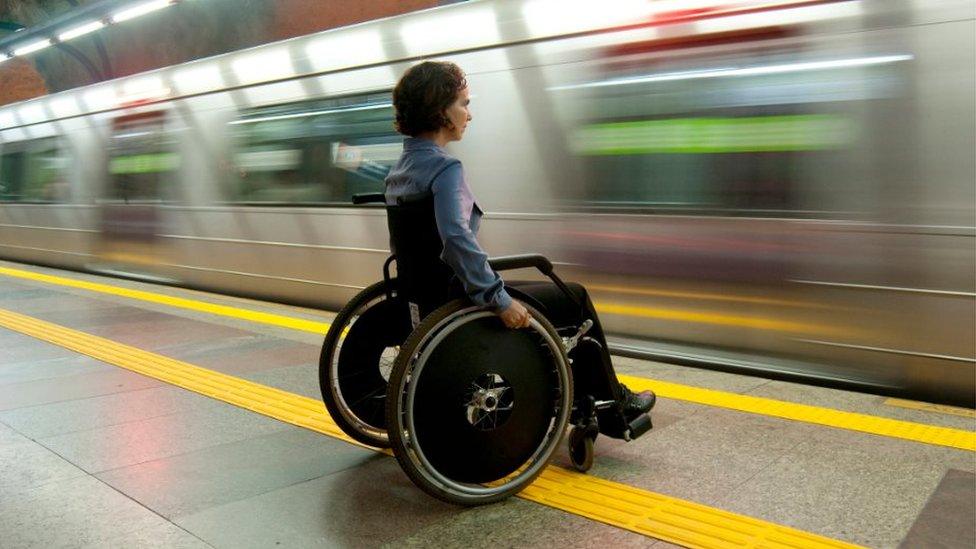
When it comes to rail staff guiding someone with a visual impairment, a layer of material may now be used as a barrier between the guide and the customer, according to the Rail Delivery Group (RDG) whose members include all Britain's railway companies.
Some staff may also choose to guide from behind or verbally to avoid face-to-face contact,
For those who rely on lip-reading, some staff will wear visors while those in masks will step back two metres to remove their mask and continue the conversation.
Although it's not essential, passengers are encouraged to plans trips in advance to ensure access requirements can be met.
This may be most useful if you want a wheelchair space on a train, because, according to RDG, a few have been closed due to social distancing in a "very few incidences".
Ramps, handrails and touch-points will be cleaned regularly. Cash can still be used if needed and crucially, toilets are open.
Transport for London
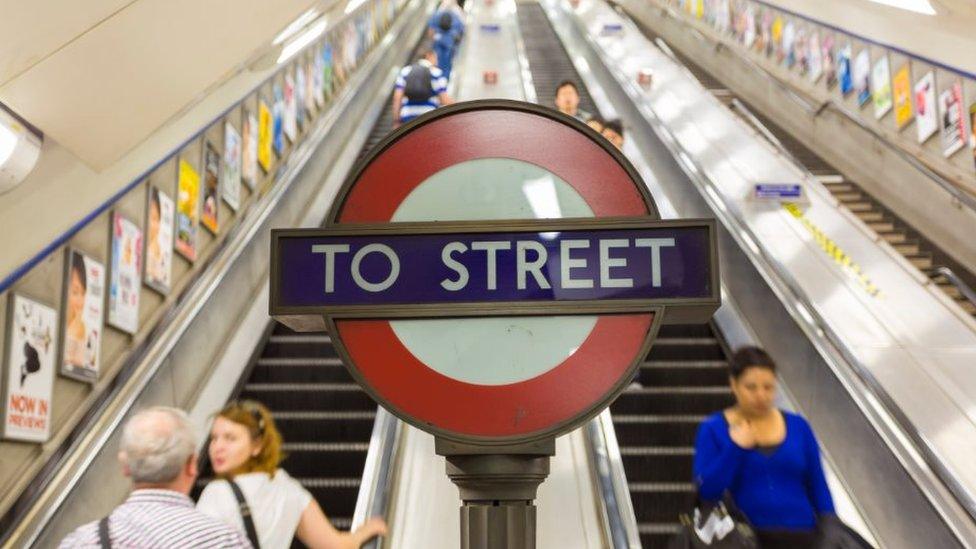
If you're a Londoner, or your journey takes you that way, you'll see all front-line staff wearing face coverings and taxi drivers too. Hand sanitiser is available at tube, rail and ferry stations and on the Emirates Air Line.
You can "turn up and go" without booking access, but if you're visually impaired you might experience some disruption.
If you're used to be being guided between platforms, staff will now do so verbally. If you need physical guiding or your route involves an escalator or lift, a taxi will be booked to take you to the next accessible point on your journey.
If you require any form of access, tell staff and and you'll be able to queue jump, legitimately.
Townscapes
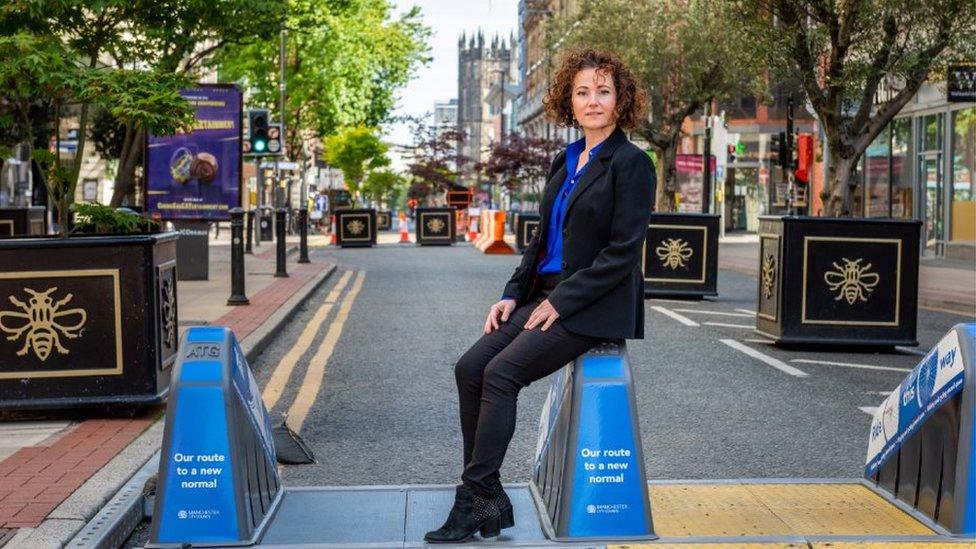
Cllr Angeliki Stogia on one of Manchester's new pedestrian-friendly streets
Town and cities may soon look different as councils try to become more cycle and pedestrian friendly.
In London, some streets will be switched to walking and cycling only while others may include buses although those with mobility issues will still have access to these areas, according to the Mayor's office.
Manchester City Council has made the Deansgate shopping area a pedestrian and cycle haven.
Councillor Angeliki Stogia says disabled people were at the forefront of considerations when the scheme was being planned.
"One of our stipulations was that all disabled bays in the area must remain accessible, via the previous routes used," she says.
Groups representing disabled people will be asked to feed back on the scheme in the hope it may become permanent.
Cycling
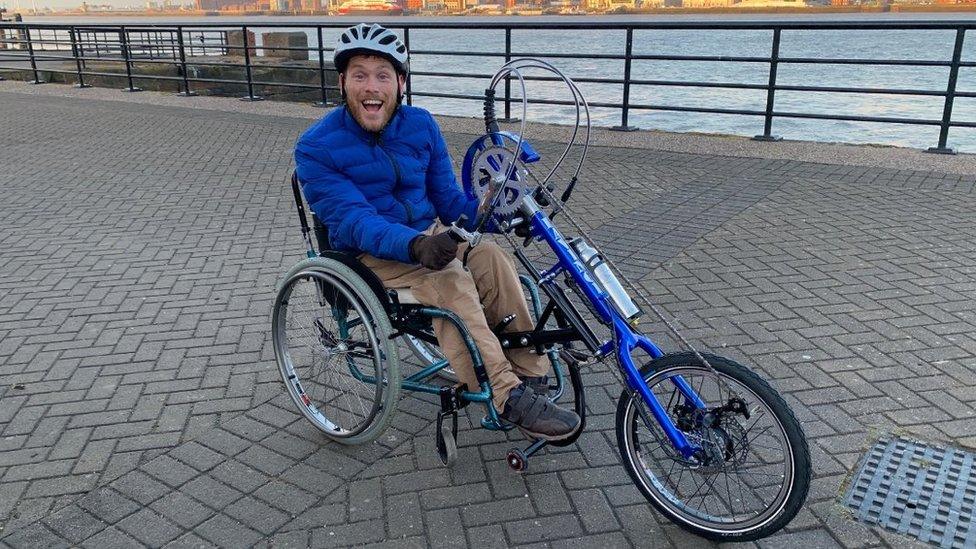
For those who like the wind in their hair, disabled cycling has seen an upsurge in interest, but there are a few things to consider before you don your lycra.
Wheels for Wellbeing which offers people the chance to try accessible bikes - trikes, four-wheels and handcycles - says inclusive infrastructure is not quite there yet
Accessible bikes are often longer and wider than standard two-wheelers, so using cycle lanes or parking can be difficult.
The organisation's director Isabelle Clement, who uses a handcycle attached to her wheelchair, wants something akin to the Blue Badge Scheme so disabled cyclists have specific parking areas, and are allowed to cycle through pedestrian areas if they're unable to dismount.
"I can't leave my £4k hand cycle out on the road because there's no parking solution and someone will nick it," she says. "Bikes can be damn right bloody expensive - more expensive than a second-hand car."
And that's another problem. Wheels for Wellbeing wants accessible bikes to be available at cycle hire points, and included in personal health budgets, external - a benefit which enables people to manage healthcare such as booking physiotherapists.
"If you cycled every day you wouldn't need the physio and you'd keep your heart and lungs in good shape," Isabelle says.
About 75% of disabled cyclists find it easier than walking because it's non-weight bearing - but even so Isabelle says a lot of people are surprised disabled people cycle at all.
"That should not be a mind-blowing revelation."
Face masks
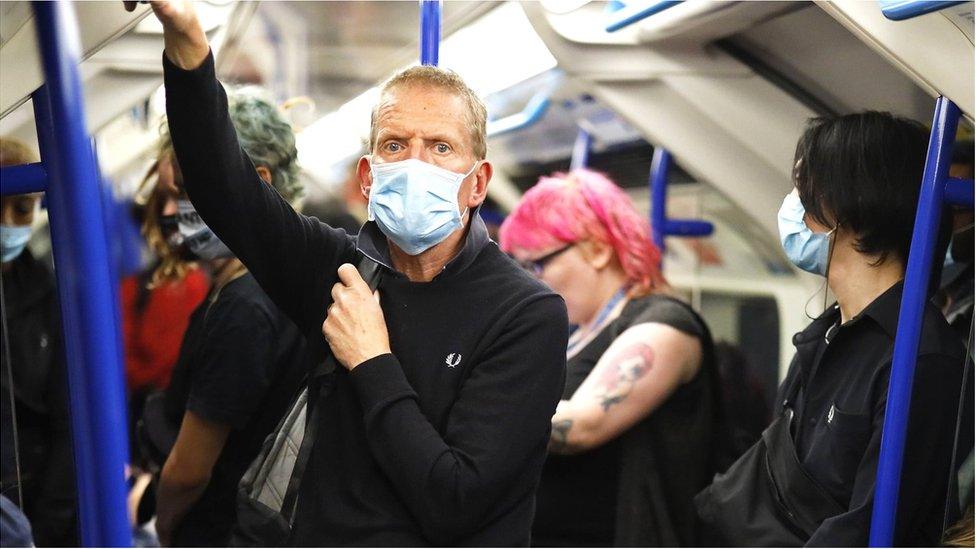
Lastly, the government has made a few exceptions to the mandatory wearing of face masks on public transport.
If you have a disability which means you can't put on, wear or remove a face covering or wearing one would cause "severe distress" or you are travelling with, or providing assistance to, someone who relies on lip-reading, you do not need to wear one.
For more Disability News, follow BBC Ouch on Twitter, external and Facebook, external, and subscribe to the podcast.

- Published11 May 2020
